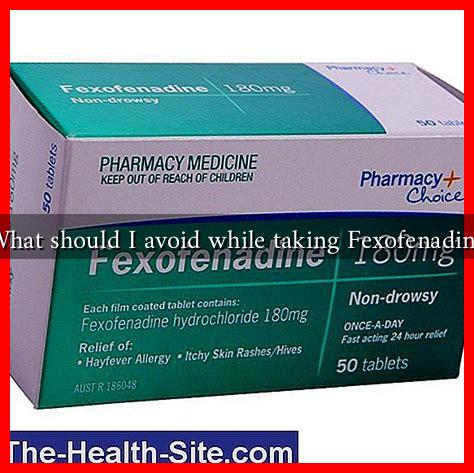-
Table of Contents
What Should I Avoid While Taking Fexofenadine?
Fexofenadine is a popular antihistamine used to relieve allergy symptoms such as hay fever, hives, and other allergic reactions. While it is generally considered safe and effective, there are certain precautions and interactions that users should be aware of to ensure optimal results and avoid adverse effects. This article will explore what to avoid while taking Fexofenadine, providing valuable insights for those considering or currently using this medication.
Understanding Fexofenadine
Fexofenadine works by blocking the action of histamine, a substance in the body that causes allergic symptoms. It is available over-the-counter and is often preferred due to its non-drowsy formulation. However, like any medication, it is essential to use it responsibly.
Key Precautions to Consider
When taking Fexofenadine, there are several factors to consider to maximize its effectiveness and minimize potential risks. Here are some key precautions:
- Avoid Certain Medications: Some medications can interact with Fexofenadine, reducing its effectiveness or increasing the risk of side effects. For example, antacids containing aluminum or magnesium can interfere with the absorption of Fexofenadine. It is advisable to space these medications apart by at least two hours.
- Limit Alcohol Consumption: While Fexofenadine is less sedating than other antihistamines, alcohol can still enhance drowsiness and impair cognitive function. It is best to limit or avoid alcohol while taking this medication.
- Be Cautious with Grapefruit Juice: Grapefruit juice can affect the metabolism of various medications, including Fexofenadine. Although the interaction is not as pronounced as with some other drugs, it is wise to avoid consuming grapefruit or its juice while on this medication.
- Monitor for Allergic Reactions: Although rare, some individuals may experience allergic reactions to Fexofenadine itself. Symptoms may include rash, itching, or difficulty breathing. If any of these occur, seek medical attention immediately.
Dietary Considerations
Your diet can also play a role in how well Fexofenadine works. Here are some dietary considerations to keep in mind:
- Avoid High-Fat Meals: Consuming Fexofenadine with a high-fat meal can reduce its absorption, leading to decreased effectiveness. It is recommended to take the medication on an empty stomach or with a light meal.
- Stay Hydrated: Adequate hydration is essential for overall health and can help mitigate some side effects of antihistamines, such as dry mouth or dizziness.
Potential Side Effects and When to Seek Help
While Fexofenadine is generally well-tolerated, some users may experience side effects. Common side effects include:
- Headache
- Dizziness
- Nausea
- Dry mouth
If you experience severe side effects or symptoms such as rapid heartbeat, severe dizziness, or difficulty breathing, it is crucial to seek medical attention immediately. Always consult your healthcare provider if you have concerns about side effects or interactions with other medications.
Conclusion
Fexofenadine can be an effective solution for managing allergy symptoms, but it is essential to be aware of what to avoid while taking this medication. By steering clear of certain medications, limiting alcohol and grapefruit juice, being mindful of dietary choices, and monitoring for side effects, users can enhance the effectiveness of Fexofenadine and reduce the risk of complications. Always consult with a healthcare professional before starting any new medication or if you have questions about your current treatment plan. For more information on Fexofenadine and its uses, you can visit [Drugs.com](https://www.drugs.com/fexofenadine.html).

